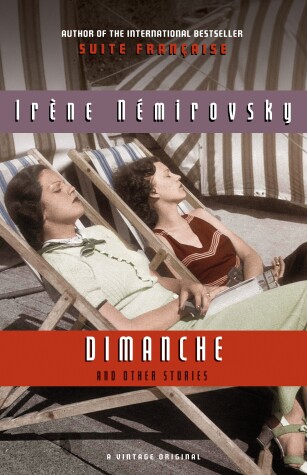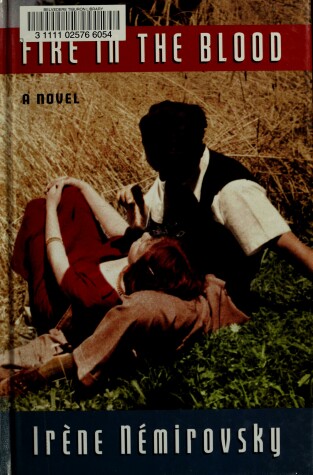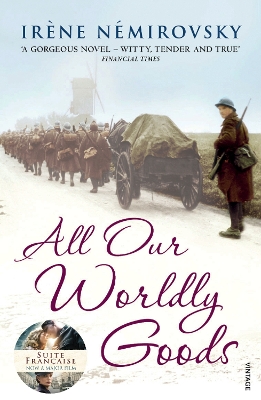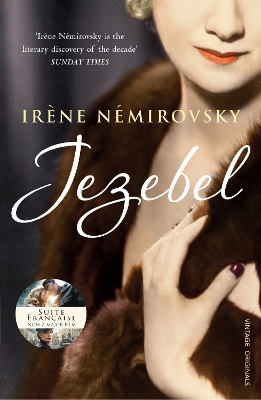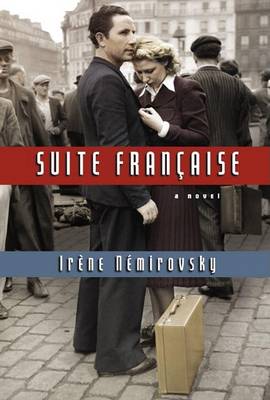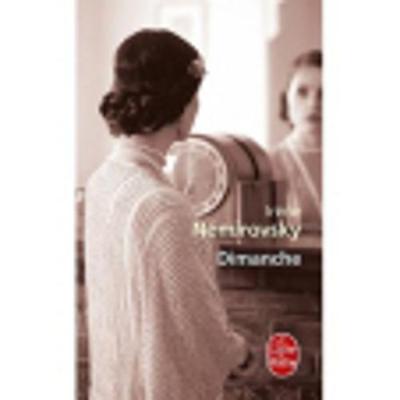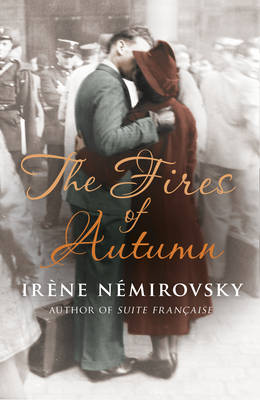Vintage International
8 total works
Written between 1934 and 1942, these ten gem-like stories mine the same terrain of Némirovsky's bestselling novel Suite Française: a keen eye for the details of social class; the tensions between mothers and daughters, husbands and wives; the manners and mannerisms of the French bourgeoisie; questions of religion and personal identity. Moving from the drawing rooms of pre-war Paris to the lives of men and women in wartime France, here we find the beautiful work of a writer at the height of her tragically short career.
Nemirovsky looks at her characters, both young and old, with the same clear-eyed distance and humanity as she displayed in "Suite Francaise", unpeeling layer after layer. Atmospheric and haunting as "Embers" and with the crystalline perfection of "Chekhov", "Fire in the Blood" is a gripping literary find..
From the author of the bestselling Suite Française.
Pierre and Agnès marry for love against the wishes of his parents and the family patriarch, the tyrannical industrialist Julien Hardelot, provoking a family feud which cascades down the generations. Even when war is imminent and Pierre is called up, the old man is unforgiving. Taut, evocative and beautifully paced, All Our Worldly Goods points up with heartbreaking detail and clarity how close were those two wars, how history repeated itself, tragically, shockingly...
'A remarkable novel...beautifully translated... Her voice, compassionate yet always shrewd, with its sharp portrait of France at war and during the optimistic and confused Twenties and early Thirties, is always distinctive' Literary Review
From the author of the bestselling Suite Française.
In a French courtroom, the trial of a woman is taking place. Gladys Eysenach is no longer young, but she is still beautiful, elegant, cold. She is accused of shooting dead her much-younger lover. As the witnesses take the stand and the case unfolds, Gladys relives fragments of her past: her childhood, her absent father, her marriage, her turbulent relationship with her daughter, her decline, and then the final irrevocable act. With the depth of insight and pitiless compassion we have come to expect from the author of Suite Française, Irène Némirovsky shows us the soul of a desperate woman obsessed with her lost youth.
Read the lost masterpiece behind the major new film starring Kristin Scott Thomas and Michelle Williams
In 1941, Irene Nemirovsky sat down to write a book that would convey the magnitude of what she was living through by evoking the domestic lives and personal trials of the ordinary citizens of France. Nemirovsky's death in Auschwitz in 1942 prevented her from seeing the day, sixty-five years later, that the existing two sections of her planned novel sequence, Suite Francaise, would be rediscovered and hailed as a masterpiece.
Set during the year that France fell to the Nazis, Suite Francaise falls into two parts. The first is a brilliant depiction of a group of Parisians as they flee the Nazi invasion; the second follows the inhabitants of a small rural community under occupation. Suite Francaise is a novel that teems with wonderful characters struggling with the new regime. However, amidst the mess of defeat, and all the hypocrisy and compromise, there is hope. True nobility and love exist, but often in surprising places.
The Fires of Autumn was written in the last two years of Irène Némirovsky’s life, after she fled Paris in 1940. The prequel to her masterpiece, Suite Française, it is a panoramic exploration of French life and a witness to the greatest horrors of the twentieth century.
After four years of bloody warfare Bernard Jacquelain returns from the trenches a changed man. No more the naïve hopes and dreams of the teenager who went to war. Attracted by the lure of money and success, Bernard embarks on a life of luxuriant delinquency supported by suspect financial dealings and easy virtue.
Yet when his lover throws him off, he turns to a wholesome childhood friend for comfort. For ten years he lives the good bourgeois life, but as another war threatens everything Bernard had clung to starts to crumble, and the future for his marriage and for France looks terribly uncertain.
First published posthumously in France in 1957, The Fires of Autumn is a coruscating, tragic evocation of the reality of war and its dirty aftermath, and the ugly colour it can turn a man’s soul.
